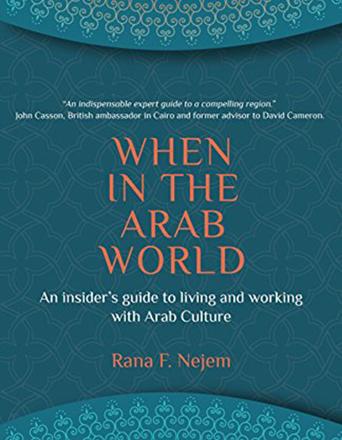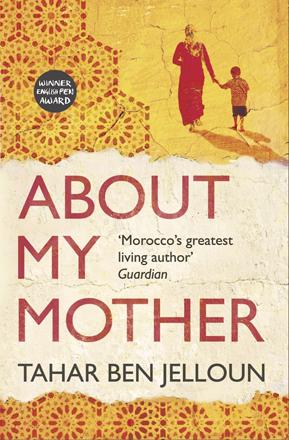You are here
Developing cultural intelligence
By Sally Bland - Oct 30,2016 - Last updated at Oct 30,2016

When in the Arab World
Rana F. Nejem
Amman: Yarnu Publications, 2016
Pp. 233
This new book is everything that the subtitle promises: “An insider’s guide to living and working with Arab culture.” The author, Rana Nejem, draws on decades of media, public relations and communications experience at Jordan Television, CNN, King Hussein’s Royal Court, and the British embassy in Amman, to write an ABC for expats on how to tailor their behaviour for success in the Arab world. In her words: “This book is about breaking through the stereotypes and the misconceptions. It is about understanding the people and demystifying the culture of the Arab world, the beliefs, values and social structures that determine how business is conducted and how things are done.” (p. 1)
“When in the Arab World” covers all the bases — from business and social protocol, to traditions, body language and wasta. Throughout, the main theme is how to develop and apply cultural intelligence. When one enters a foreign country or culture, it means “learning to respond in a different manner that is appropriate to the context… The point is to understand by focusing on the ‘why’ rather than the ‘what’ of what people do or don’t do; to approach the experience with respect for the other mixed with genuine curiosity, rather than judgement and fear”. (pp. 6-7)
As prerequisites for such understanding, Nejem provides basic information about the Arab countries and their history, and detailed explanations for social and cultural customs, and the belief systems that inspire them, whether family and tribal values, or Islam. In describing Arab society, Nejem focuses on the values and customs stemming from the Arabs’ bedouin roots, such as having large families, respecting seniors, and prizing hospitality, honour and dignity. (Peasant customs are not mentioned, though these are important in a number of Arab countries.)
The only weakness in the social section is the difficulty of capturing the transition that is taking place in Arab countries, though to different degrees. Nejem states that urbanisation is slowly eroding family and tribal ties, yet the society she describes is essentially the traditional one, only mentioning a different lifestyle taking hold in a few places, like Beirut, west Amman and Tunis. This is perhaps due to the book’s being weighted toward the Gulf countries which may be an accurate reflection of where most business is happening these days.
One of the most interesting parts concerns how persons from an honour-based society, such as the Arab one, perform in work situations. According to Nejem, people from honour-based societies are less inclined to express an opinion or to make a quick decision. Since a person’s words and actions will reflect not only on himself, but on his family or business community, most prefer to reach a consensus before sticking their neck out, and to avoid conflict or delivering bad news.
This may be frustrating for foreign business persons as it makes things less clear, and slows down the process of signing a contract or finishing a project, but Nejem has many practical suggestions for how to deal with this reality. She advises patience and, above all, stresses the need to understand that relationships and personal contact matter a lot. Making the book ultimately practical, she points out common mistakes made by foreigners, and suggests alternative behaviours.
Nejem’s writing style is refreshingly straightforward and upbeat, and further enlivened by quotes from a wide variety of expats who have lived and worked in the region. Those quoted hail from China, the US, Britain, Korea and other countries, and their comments illustrate Nejem’s main points in practice. Some of the comments are quite amusing, such as this story that happened in Jordan: A female expat went to the post office to pick up a package from her mother. When a group of uniformed employees motioned for her to come over, she was afraid she had done something wrong. It turned out they were gathered around a tray of kanafeh and wanted her to join them!
Addressing such a broad topic in such a large region inevitably entails making generalisations, but Nejem constantly warns that there are always exceptions. “We deal with people, not cultures,” she reminds, and each person is an individual. (p. 2)
Moreover, there are differences between countries and generations. “Again, there is no right or wrong, just different — different approaches, different perspectives and different ways of organising time.” (p. 136)
All in all, Nejem takes the reader on a delightful cross-cultural journey, one with great usefulness for real sojourns in the Arab world.
Related Articles
AMMAN — A new book by international communications expert Rana Nejem offers an insiders’ guide to living and working in the Arab world.At an
Bad Girls of the Arab WorldEdited by Nadia Yaqub and Rula QuawasAustin: University of Texas Press, 2017Pp.
About My MotherTahar Ben JellounTranslated by Ros Schwartz and Lulu NormanLondon: Telegram, 2016Pp.


















